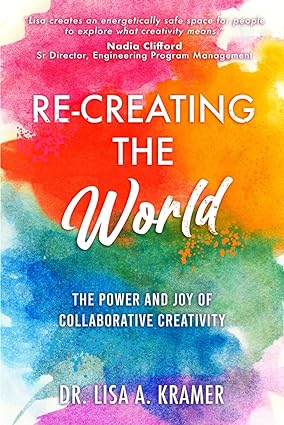The "Other-ing" of Women: Race,Culture, and Politics
"Her questions, after all, are Miss Anne's questions (though taken to dangerous extremes), as pressing now as they were almost a hundred years ago: Can we alter our identities, and, if so, how? What, if anything, do we owe those with whom we are categorized? Does freedom mean escaping our social categories or inhabiting those that don't seem to belong to us? (Carla Kaplan, Miss Anne in Harlem, 341)
I mentioned the other day that I was reading Carla Kaplan's book Miss Anne in Harlem: The White Women of the Black Renaissance and that it got me thinking about writing authentic characters different from ourselves. My thinking didn't stop there.
[caption id="attachment_7303" align="aligncenter" width="310"]Participating across cultures. Okayama, Japan ca. 1993[/caption]
I was fascinated by the story of these women, whose voices have, to some extent, disappeared into the untold annals of history (as women's stories are wont to do). Each of them chose to venture across color lines for their own reasons, some from a genuine belief that color does not matter and some for more complex reasons. All of these women, in some ways, defied the social norms of their time (the 1920's, 1930's, and 1940's) and many of them faced the criticism of the populace for behavior that challenged the accepted roles of upper class white women in a world where those roles were clearly defined.
As I read, though, I began to realize that as much as some things seem to have changed, the voice of Miss Anne still lives in our society. Perhaps racial lines have changed. Perhaps the roles women can take on have grown. Perhaps the stigma of "miscegenation" has disappeared somewhat (as more mixed race people become part of the population). Perhaps these things have changed to some extent . . . but I began to wonder how much has really changed in the face of the (ridiculous) challenges occurring right now in our government--challenges that I would argue are based on race, women's rights, and religion more than anything else.


I'm sure many of you have seen the above images. The first is of the sexist campaign buttons that appeared at the Republican convention. The second is of Miley Cyrus and her now infamous twerk-ing episode.
Now, I'm not using this as an argument about Democrats vs. Republicans (frankly I am tired of the failed two party system and don't want to discuss it). Nor am I in anyway arguing that Cyrus' choice was anything but distasteful. However, both these images are important because they reflect on how little things have changed in some ways.
[Nancy Cunard] never succeeded in erasing the taint of sexual lunacy from her embrace of black politics and culture. Almost every aspect of her life has been pathologized and chalked up to selfishness, neurosis, attention grabbing, or worse. Her racial politics come in for even more condemnation now than they did in her own day, when her dedication--if nothing else--won her respect. (Kaplan, 334)It seems that women who put themselves out there in non-traditional ways still face the ostracism of some members of society. In addition, race still plays an issue, although the lines are blurrier now.
Miss Anne did not have role models. No one was doing the things she tried to do. Even today, her combination of qualities is frowned upon. Women who are politically impassioned--Emma Goldman, Eleanor Roosevelt, Hillary Clinton--are lightning rods for criticism and are caricatured as masculine and unnatural. It is still considered unseemly, evidently, for a woman to take too much pleasure in her politics. And the pleasure of identifying with others has always been suspect.(Kaplan 339)
As I was reading I kept asking myself this question, "when did I become white?" You may think that's a strange question to ask, however, during this time period Jews were not considered white:
For Jewish women like Meyer, there may have been particular temptations associated with activist work in Harlem. Jewish activists might become "white" people in Harlem, when many had never before experienced themselves as "whites" in the larger American culture.(Kaplan 178)This intrigued me, as someone who was told (when I wrote my doctoral dissertation that looked at issues of diversity in theatre for young audiences) that the nature of my "whiteness" invalidated my speaking up for concerns about diversity--even though I clearly define my "Other-ness" based on my experiences growing up Jewish as well as my time living in Japan. According to Karen Brodkin Sacks in an essay called "How Jews Became White", "it was the biggest and best affirmative action program in the history of our nation."
She writes:
It is certainly true that the United States has a history of anti-Semitism and of beliefs that Jews are members of an inferior race. But Jews were hardly alone. American anti-Semitism was part of a broader pattern of late-nineteenth-century racism [ . . . ] The picture changed radically after World War II.If my Jewish heritage could suddenly shift across color lines, then is race an actual thing? Does race go any deeper than skin color? In the same sense, other than honest-to-goodness biological differences (such as the ability to give birth) is gender something that can be redefined and re-imagined so that people are seen as people, not defined by the color of their skin, their gender identity or their sexual politics?
I am a woman who crossed racial lines. I know it doesn't matter, and most people don't even see it. I also am an outspoken woman with strong leanings towards justice, politics, and the value of identifying with others.
[caption id="attachment_6962" align="aligncenter" width="960"]
 Adventure on a night barge.[/caption]
Adventure on a night barge.[/caption]Does that make me a modern day Miss Anne? If so, I'm glad, and it's time to make my voice heard.
